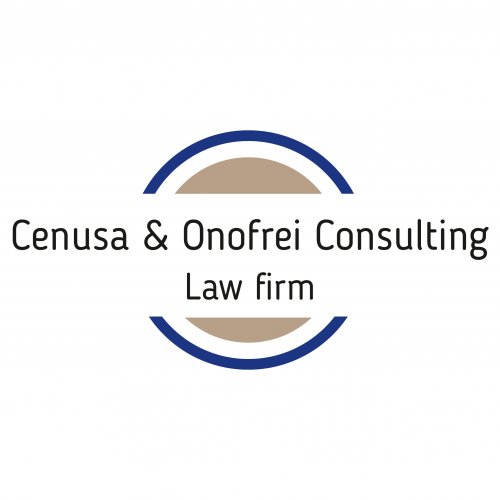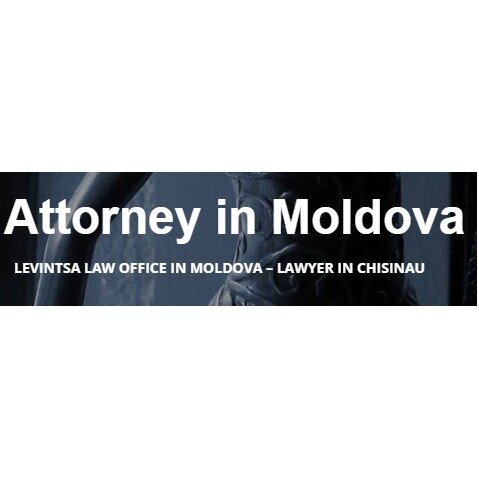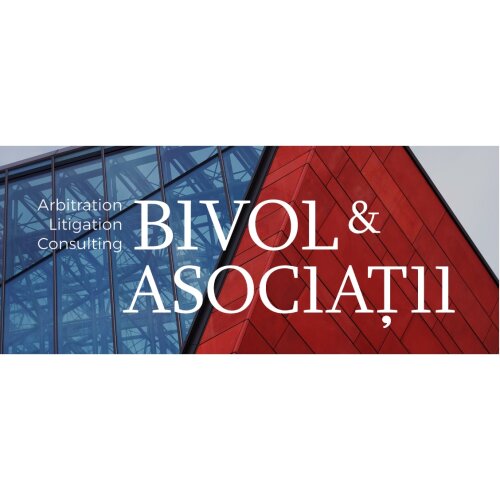Best International Trade Law Lawyers in Republic of Moldova
Share your needs with us, get contacted by law firms.
Free. Takes 2 min.
Or refine your search by selecting a city:
List of the best lawyers in Republic of Moldova
About International Trade Law in Republic of Moldova
International Trade Law in the Republic of Moldova encompasses a variety of laws, agreements, and regulations that govern the exchange of goods, services, and capital across international borders. As a landlocked country in Eastern Europe, Moldova is a member of several international organizations, including the World Trade Organization (WTO), which plays a significant role in shaping its trade policies. International trade law in Moldova aims to promote fair trade practices, encourage foreign investments, and ensure compliance with global trade standards.
Why You May Need a Lawyer
There are numerous situations where legal assistance in international trade law might be necessary. Businesses and individuals often seek legal help when entering or exiting foreign markets, drafting and negotiating international contracts, addressing disputes and litigation, or ensuring compliance with import and export regulations. Additionally, navigating tariffs, trade sanctions, and embargoes can require professional legal interpretation and advice. Consulting a lawyer can be crucial in ensuring that all legal requirements are met and that trade transactions are conducted smoothly and legally.
Local Laws Overview
The legal framework surrounding international trade in Moldova is multifaceted, involving national and international legislation. Key local laws include the Customs Code, which regulates all customs procedures and tariff applications, and the Law on Export and Import Controls, which sets forth rules on the goods and services that can be legally traded across borders. Moldova's trade regulations are also influenced by its obligations as a WTO member, requiring adherence to global trade standards and agreements. Furthermore, Moldova has several bilateral and multilateral trade agreements with other countries that impact trade relations and access to international markets.
Frequently Asked Questions
What is the role of the WTO in Moldova's trade policies?
The World Trade Organization helps shape Moldova's trade policies by providing a framework for negotiating trade agreements and a dispute resolution process aimed at enforcing regulations and agreements.
Do I need to register my business to engage in international trade in Moldova?
Yes, businesses engaged in international trade need to be properly registered according to Moldovan laws and should comply with the requirements laid out by the State Registration Chamber.
What documents are necessary for importing goods into Moldova?
Common documents required include a commercial invoice, a bill of lading, a certificate of origin, and in some cases, import licenses and customs declarations may also be required.
How are international trade disputes resolved in Moldova?
Disputes can be resolved through negotiations, arbitration, or litigation. Moldova recognizes international arbitration, with local enforcement of foreign arbitral awards based on international treaties and conventions.
What taxes and duties apply to imports in Moldova?
Import duties, VAT, and excise duties apply to imported goods. The specific rates depend on the classification of goods based on the Harmonized System (HS) Code.
Are there any restrictions on foreign investments in Moldova?
Moldova is generally open to foreign investments with few restrictions, particularly in strategic sectors. However, sector-specific regulations or approvals may apply.
Can international trade contracts be in a foreign language?
Contracts can be drafted in a language mutually agreed upon by the parties involved, though a Romanian translation may be required for official and legal purposes.
What is the process for exporting goods from Moldova?
Exporters must complete customs declarations, and depending on the goods, additional licenses or certificates may be required. Compliance with international shipping regulations is also necessary.
Is it possible to appeal against customs decisions?
Yes, decisions made by customs authorities can be appealed through an administrative process or, if necessary, through the Moldovan legal system.
What impact do trade sanctions have on businesses in Moldova?
Trade sanctions can restrict the ability to trade with certain countries or entities, impacting supply chains and market access. Compliance with international sanctions is crucial for businesses in Moldova.
Additional Resources
For further information and assistance, consider reaching out to the following resources:
- Moldovan Customs Service: Provides guidance on customs procedures and regulations.
- Ministry of Economy and Infrastructure: Offers information on trade policies and economic development plans.
- Chamber of Commerce and Industry of Moldova: Supports businesses in navigating trade challenges and opportunities.
- Moldovan Branch of the International Chamber of Commerce: Facilitates international trade and investment.
Next Steps
If you require legal assistance in the field of International Trade Law, follow these steps:
- Identify the specific legal issue or requirement you have.
- Research and select a qualified international trade lawyer or law firm with experience in Moldovan trade law.
- Schedule a consultation to discuss your needs and understand potential costs and strategies.
- Provide all necessary documentation and background information to your lawyer to facilitate a thorough understanding of your situation.
- Follow your lawyer’s advice and participate actively in discussions and decision-making to achieve the best outcomes for your trade activities.
Lawzana helps you find the best lawyers and law firms in Republic of Moldova through a curated and pre-screened list of qualified legal professionals. Our platform offers rankings and detailed profiles of attorneys and law firms, allowing you to compare based on practice areas, including International Trade Law, experience, and client feedback.
Each profile includes a description of the firm's areas of practice, client reviews, team members and partners, year of establishment, spoken languages, office locations, contact information, social media presence, and any published articles or resources. Most firms on our platform speak English and are experienced in both local and international legal matters.
Get a quote from top-rated law firms in Republic of Moldova — quickly, securely, and without unnecessary hassle.
Disclaimer:
The information provided on this page is for general informational purposes only and does not constitute legal advice. While we strive to ensure the accuracy and relevance of the content, legal information may change over time, and interpretations of the law can vary. You should always consult with a qualified legal professional for advice specific to your situation.
We disclaim all liability for actions taken or not taken based on the content of this page. If you believe any information is incorrect or outdated, please contact us, and we will review and update it where appropriate.
Browse international trade law law firms by city in Republic of Moldova
Refine your search by selecting a city.















